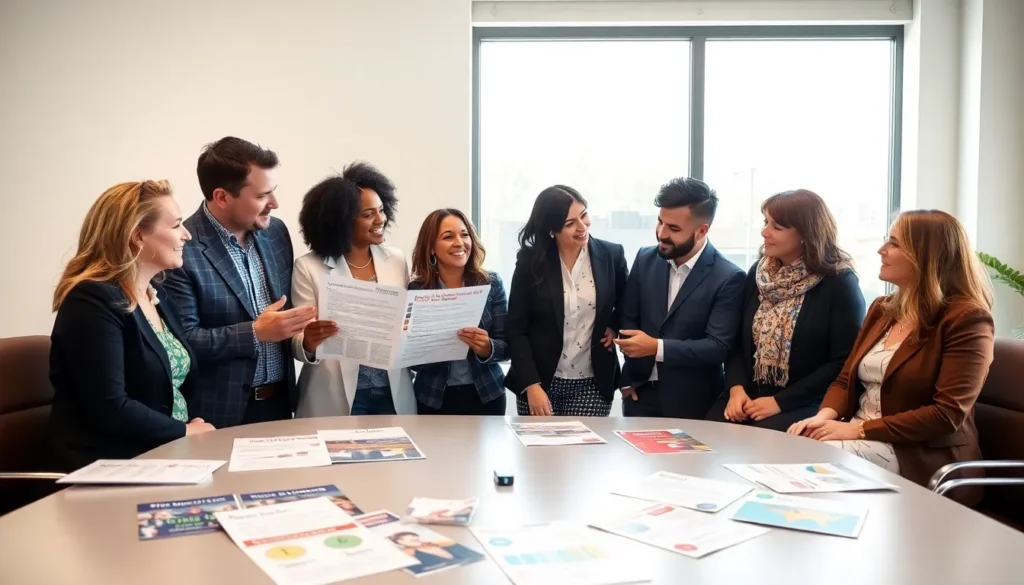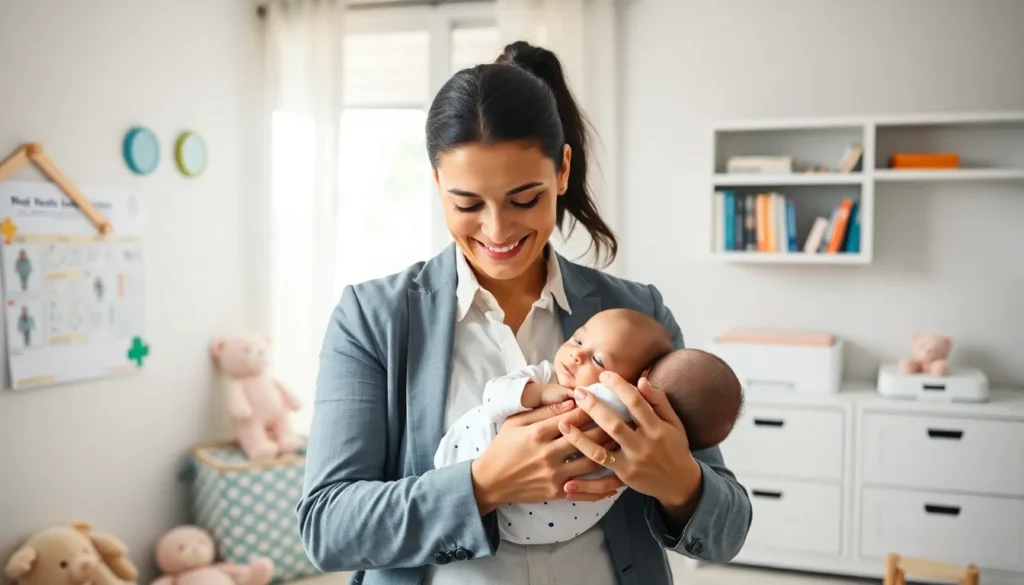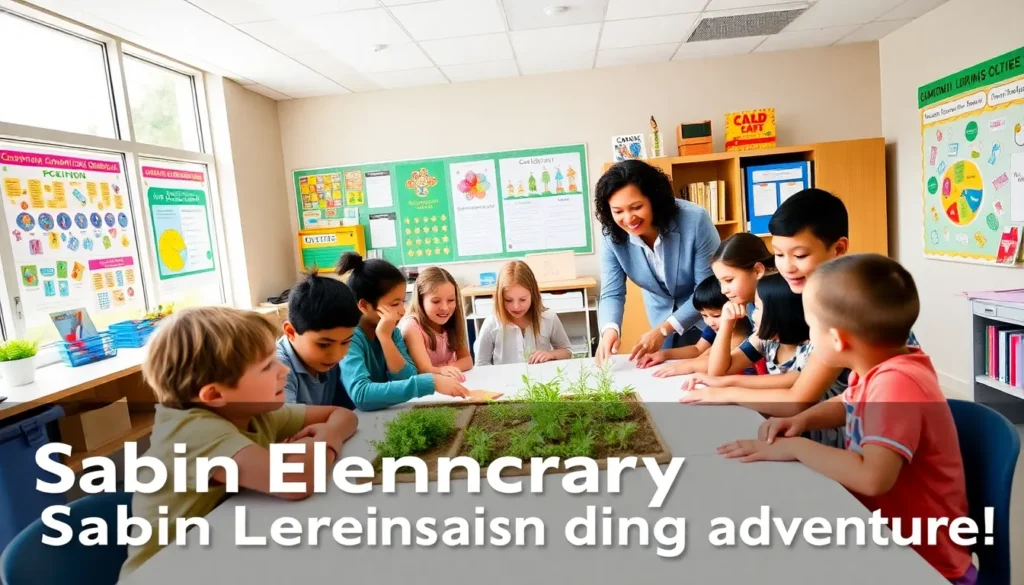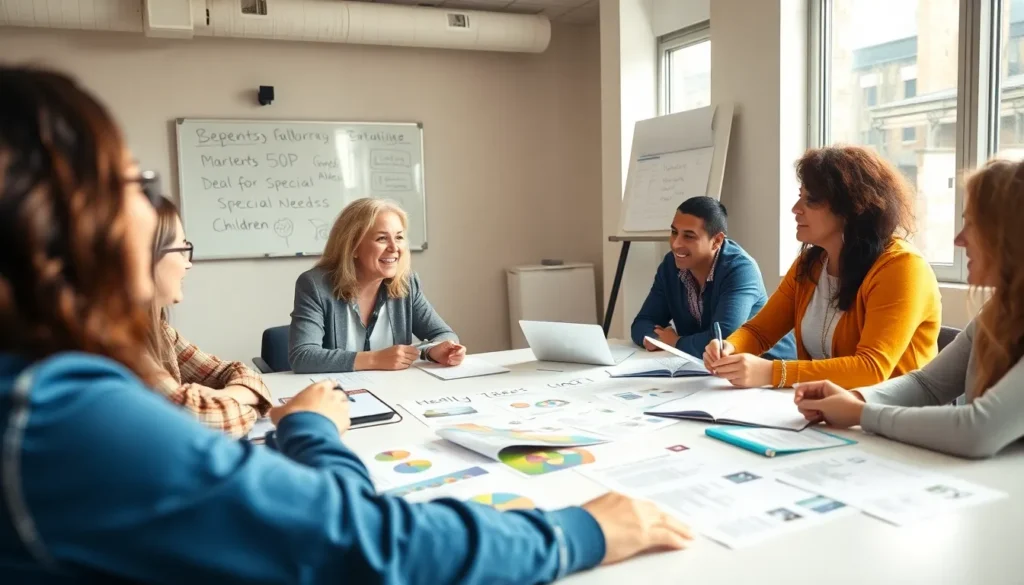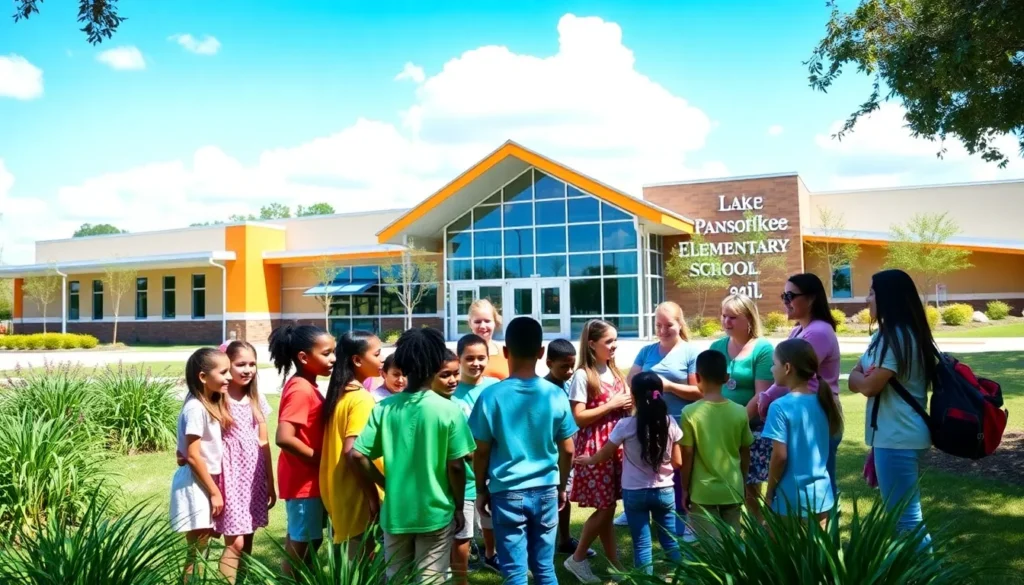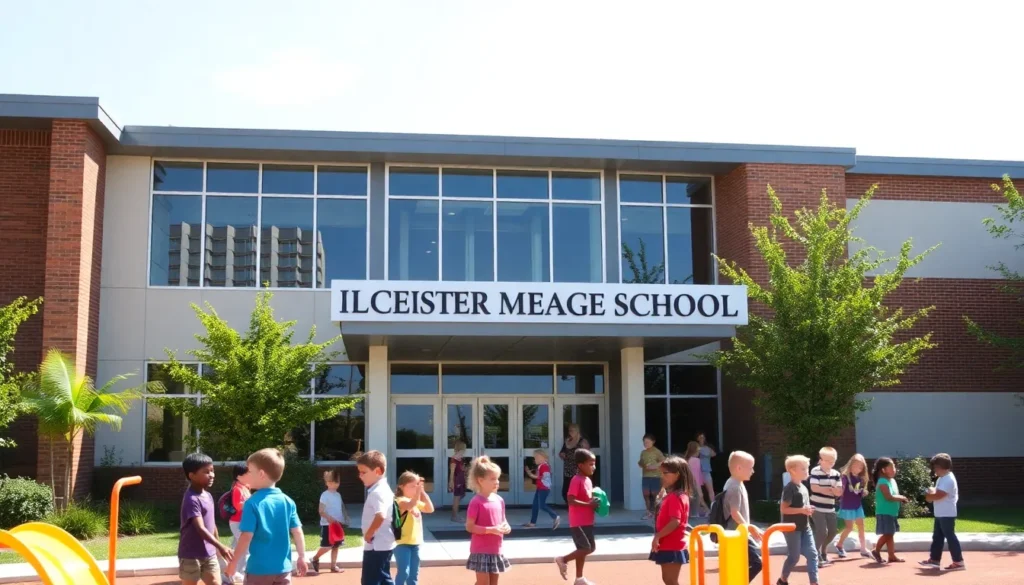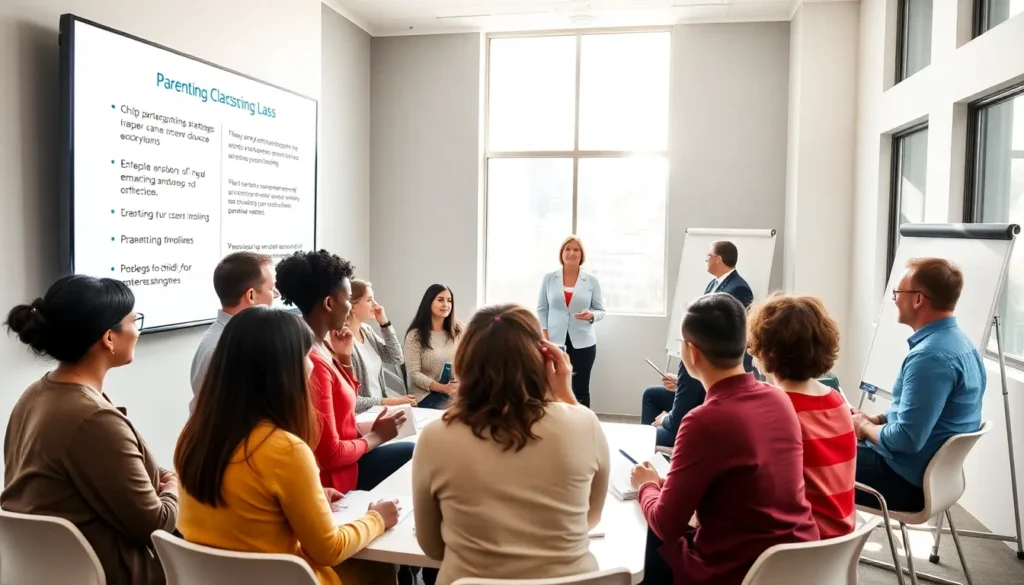Navigating the school environment goes beyond academics; it’s also about mastering social skills. For students, developing these skills is crucial for building friendships, collaborating with peers, and fostering a positive learning atmosphere. Strong social skills can enhance emotional intelligence, leading to better interactions and increased confidence.
In today’s diverse classrooms, the ability to communicate effectively and empathize with others is more important than ever. Schools play a vital role in teaching these essential skills, preparing students not just for the classroom but for life beyond. Understanding how to engage in social situations can significantly impact a child’s overall development and future success.
Table of Contents
ToggleUnderstanding School Social Skills
School social skills encompass the abilities necessary for effective interaction among peers and adults in educational settings. These skills foster personal development and enhance the school experience.
Definition and Importance
School social skills refer to the competencies that enable students to communicate effectively, build relationships, and navigate social norms. These skills are crucial for academic success, emotional health, and the development of meaningful connections with others. Strong social skills allow students to resolve conflicts, collaborate in group settings, and participate actively in class discussions, ultimately leading to a supportive and inclusive environment.
Key Components of Social Skills
- Communication: Clear expression of thoughts and feelings through verbal and non-verbal means.
- Empathy: The ability to understand and share the feelings of others, enhancing relationships.
- Cooperation: Working well with peers towards common goals, fostering teamwork and collaboration.
- Conflict Resolution: The process of addressing disagreements constructively and finding acceptable solutions.
- Active Listening: Fully concentrating on the speaker, understanding their message, and responding thoughtfully.
- Respect: Acknowledging diverse perspectives and treating others with consideration, promoting a positive atmosphere.
Developing School Social Skills

Developing school social skills requires intentional strategies and active involvement from both students and educators. The aim is to create a nurturing atmosphere that enhances interpersonal interactions and promotes respect and understanding among peers.
Strategies for Students
- Practice Communication: Students can enhance verbal and non-verbal communication through group discussions, role-playing, and presentations. Engaging in various activities improves clarity and expressiveness.
- Engage in Teamwork: Participating in group projects encourages cooperation and teamwork. Working together helps students understand the importance of each member’s contribution.
- Cultivate Empathy: Students should practice empathy by considering others’ perspectives during group interactions. This can be fostered through guided discussions about feelings and experiences.
- Resolve Conflicts: Developing conflict resolution skills is essential. Students can use structured formats to address disagreements, focusing on constructive dialogue rather than confrontation.
- Listen Actively: Active listening techniques, such as summarizing what another person says, help students become more engaged communicators. This increases understanding and enhances relationships.
- Show Respect: Respectful behavior, including using polite language and acknowledging others’ opinions, reinforces a positive environment. Practicing respect fosters trust and collaboration.
Role of Educators and Administrators
- Model Social Skills: Educators should exhibit strong social skills in their interactions, serving as role models for students. Demonstrating effective communication, respect, and empathy sets a behavioral standard.
- Create Structured Programs: Schools can implement programs focused on social-emotional learning (SEL). These programs can provide structured lessons on various social skills and encourage daily practice.
- Facilitate Peer Mediation: Administrators can establish peer mediation programs to empower students in resolving conflicts independently. This encourages responsibility and enhances problem-solving skills.
- Encourage Participation: Educators should promote an inclusive environment where every student feels comfortable contributing to discussions. Recognizing diverse viewpoints enriches learning experiences.
- Provide Feedback: Offering constructive feedback helps students understand their social interactions and identify areas for improvement. Regular feedback can guide emotional intelligence development.
- Organize Social Events: Administrators can arrange social events, such as school clubs or team-building exercises, that foster connections among students. These events encourage relationship building and strengthen community bonds.
Assessing School Social Skills
Assessing school social skills involves systematic methods to gauge students’ abilities to interact effectively. Implementing these methods provides insight into areas needing improvement and fosters positive social development.
Methods of Evaluation
- Observational Assessments: Teachers observe student interactions during class activities, group work, and recess. This method highlights behaviors like sharing, cooperation, and conflict resolution.
- Peer Assessments: Students assess each other’s social skills through structured questionnaires or rating scales. This approach encourages self-reflection and understanding among classmates.
- Self-Assessments: Students complete self-evaluations to reflect on their social skills. They identify personal strengths and areas for growth, enhancing self-awareness.
- Role-Playing Exercises: Educational settings can use role-playing to simulate social scenarios. This method allows students to practice and demonstrate social skills in a supportive environment.
- Social Skills Checklists: Teachers use checklists to systematically evaluate specific skills. These checklists focus on communication, empathy, and conflict resolution, enabling targeted feedback.
Importance of Feedback
Feedback is crucial for developing social skills. Regular, constructive feedback from educators and peers helps students understand their social interactions and identify strengths and weaknesses.
- Encouraging Growth: Timely feedback encourages continuous improvement, allowing students to adjust their behaviors accordingly.
- Building Confidence: Positive reinforcement through feedback boosts students’ confidence in their social abilities, motivating them to engage with peers.
- Guiding Development: Specific feedback helps students understand social dynamics, teaching them to navigate complex interactions effectively.
- Fostering Communication: Open channels for feedback promote an environment where students feel safe discussing their experiences and challenges.
- Reinforcing Skills: Regular feedback solidifies learned social skills, ensuring they remain a part of students’ daily interactions.
Challenges in School Social Skills Development
Developing social skills in a school setting involves various challenges. Understanding these barriers can help educators and students navigate potential roadblocks effectively.
Identifying Barriers
Several barriers impede the development of social skills in students.
- Lack of Awareness: Many students may not recognize their social skill deficits, impacting their ability to engage effectively with peers.
- Confidence Issues: Low self-esteem can hinder participatory behavior, resulting in isolation or reluctance to express thoughts.
- Cultural Differences: Diverse backgrounds may lead to misunderstandings in communication styles, affecting interactions among peers.
- Social Anxiety: Students with anxiety disorders may struggle to initiate conversations or participate in group activities.
- Limited Opportunities: Insufficient engagement in collaborative tasks or extracurricular activities can restrict social skill practice.
Identifying these barriers allows educators to tailor interventions that address specific needs among students.
Supporting Struggling Students
Strategic support measures can assist students wrestling with social skills.
- Structured Programs: Implement social-emotional learning (SEL) programs, integrating lessons focused on communication, empathy, and teamwork.
- Peer Mentoring: Pair students who demonstrate strong social skills with those needing support, fostering peer-to-peer learning experiences.
- Small Group Activities: Encourage participation in small groups, where students may feel more comfortable expressing themselves and collaborating.
- Targeted Interventions: Utilize individualized support plans that identify specific areas of difficulty and provide targeted coaching in those skills.
- Role-Playing: Utilize role-playing exercises to simulate social scenarios, giving students a safe environment to practice responses and build confidence.
These strategies create a supportive educational environment, promoting growth in students’ social skills and enhancing their overall school experience.
School social skills are fundamental for fostering a positive educational experience. They not only enhance academic performance but also prepare students for future interpersonal interactions. By prioritizing the development of these skills, educators create an inclusive environment that nurtures emotional intelligence and personal growth.
Implementing effective strategies and providing consistent feedback can significantly impact students’ social competencies. As students learn to communicate, empathize, and collaborate, they build the foundation for lasting relationships and successful futures. The commitment to cultivating these skills within the school setting ultimately shapes well-rounded individuals ready to thrive in diverse social landscapes.


